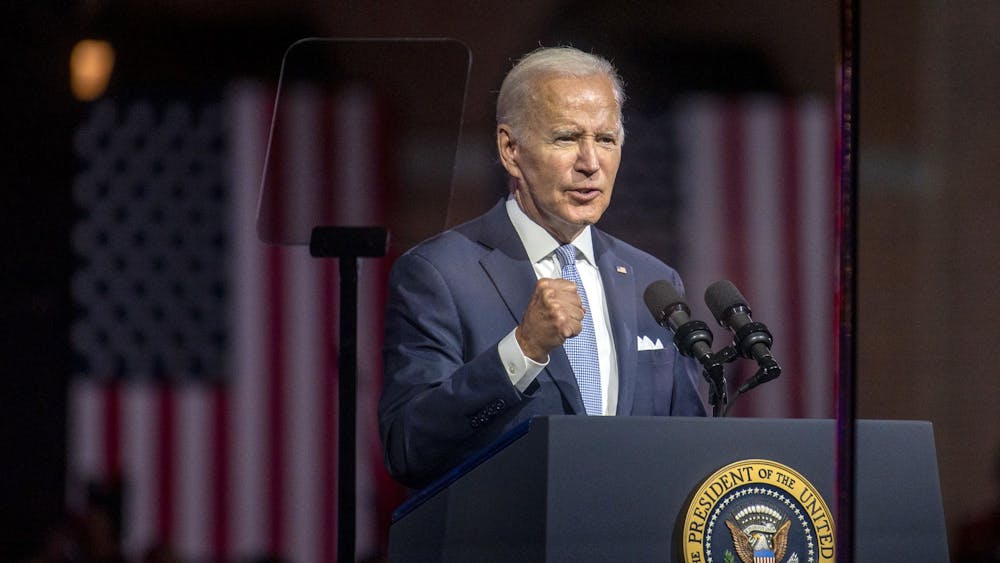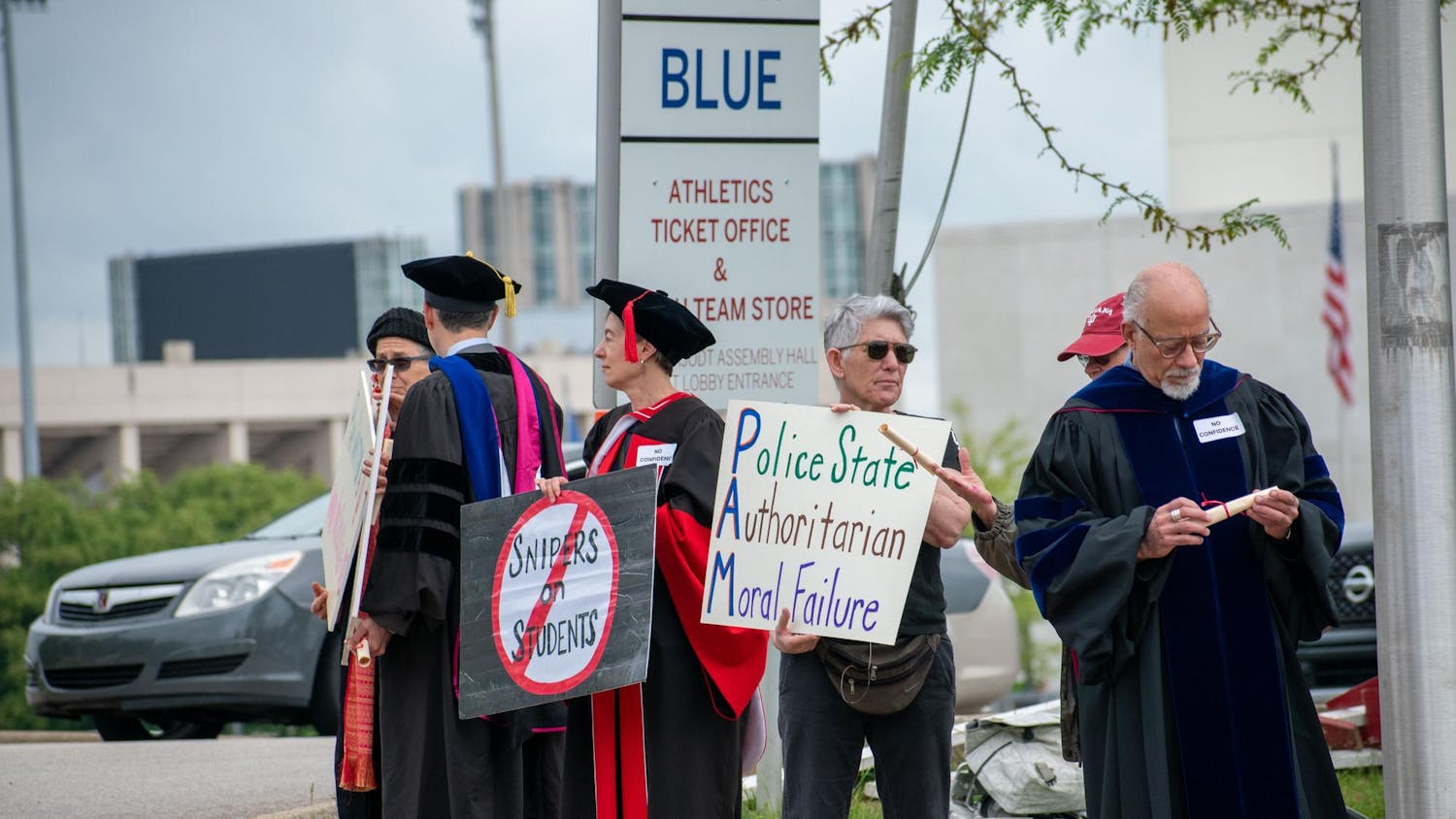Ted Carmines has been teaching a course on the presidential election every four years for the last 30. The political science professor remembers the last time the state of Indiana voted for the Democratic nominee: 1964, the year almost everyone did.
Lyndon B. Johnson won by a landslide, defeating Republican Barry Goldwater, who won only six states. Carmines said this is the point in the presidential election where normally the Republican nominee would be ahead by 10 to 15 points in Indiana.
Instead, an Indianapolis Star/WTHR poll conducted last week shows Sen. Barack Obama leading by three points. A CNN/Time poll, also conducted last week, gave Sen. John McCain a five-point lead in the state.
“That’s pretty much what they’ve done,” Carmines said of the Obama campaign, “is to try and turn Indiana from a safe Republican state into a competitive state ... and almost undoubtedly, unless something dramatic happens, it’ll be one of the closest races we’ve had in the last several decades here.”
The Obama campaign has poured millions of dollars into Indiana, a bulk of it on advertising, while Sen. John McCain’s campaign has not run any ads. Obama has visited Indiana five times since Indiana’s May primary, and in that time, McCain has made one visit. Obama has 32 field offices in Indiana while McCain has none.
But Luke Messer, co-chair of the McCain campaign in Indiana, said despite the funding disparity, the polls are as similar today as they were back in March: very close. He said the reason there are so many additional Obama field offices is because the campaign has had to open them in counties where there isn’t a strong Democratic presence already. Republican county offices that are already strong in many counties are being used for McCain volunteers, he said.
“History shows there’s more to winning an election than spending money,” Messer said. “We kind of think we’re in the David role here with David and Goliath. ... The big advantage we have is we’re on the right side of the issues when you look at where Hoosiers stand.”
But Jonathan Swain, Indiana communications director for the Obama campaign, said all five polls that came out last week showed the race is extremely tight and that he has no doubt going blue is certainly an option for Indiana – which has 11 electoral votes.
“From our standpoint those polls just reinforce what we already know,” Swain said. “Hoosiers are going to play a key role in deciding who the next president will be.”
As the Wall Street crisis has continued this week and the government prepared for a $700 billion bailout of major financial institutions, Gerald Wright, professor of political science, said voters are even less likely to vote for McCain, who is linked to an unpopular administration.
“No Democrat (has) even tried to win this state because it’s been so red,” Wright said. “It’s very hard to gauge how successful that will be.”
Swain also emphasized that the worsening economy is making Hoosiers question their traditionally Republican vote.
“Barack Obama is appealing to Hoosiers in a way that recent Democratic Presidential candidates have not,” Swain said.
So why isn’t the McCain campaign responding in Indiana?
Murray Clark, chairman of the Indiana Republican Party, said he knows they have a lot of work to do in Indiana but said he was still confident that McCain would win.
“We know it’s closer than we’d like it,” Clark said. “We know that Obama’s running a little better than Gore and Kerry did in Indiana and that he is pouring money for negative campaigning in Indiana. ... That kind of negative drumbeat after awhile is going to make a difference with some people.”
“To me it’s just a different style,” said Jennifer Hallowell, McCain’s regional campaign manager for Indiana, Michigan and Wisconsin.
Hallowell, a '96 graduate of IU, said while Obama has focused on pouring in money, the McCain campaign has had a grassroots approach.
“The Obama campaign has spent millions and millions and millions in Indiana and they haven’t gained any traction in doing that,” she said.
Despite the worries and lack of the McCain campaign’s effort in Indiana, both political science professors Wright and Carmines say they think Indiana will side with McCain in the end.
“It’s a big change,” Wright said of the chance of Indiana going blue. “States don’t change much one election to the next. The circumstances are different, and so we just don’t know.”
Carmines said it’s all a matter of how the McCain campaign responds next in terms of money and campaign efforts to visit Hoosiers.
“So far they haven’t responded in Indiana very vigorously maybe ‘cause they think tradition will carry them through,” Carmines said. “Maybe they’re right. Maybe they’re wrong. We just have to watch I think over the next couple of weeks to see if Indiana is really in play or whether it will return to its traditions.”
The polls in Indiana say it’s close. But what would it take for Hoosiers to vote Democrat for the first time since 1964?
Get stories like this in your inbox
Subscribe





